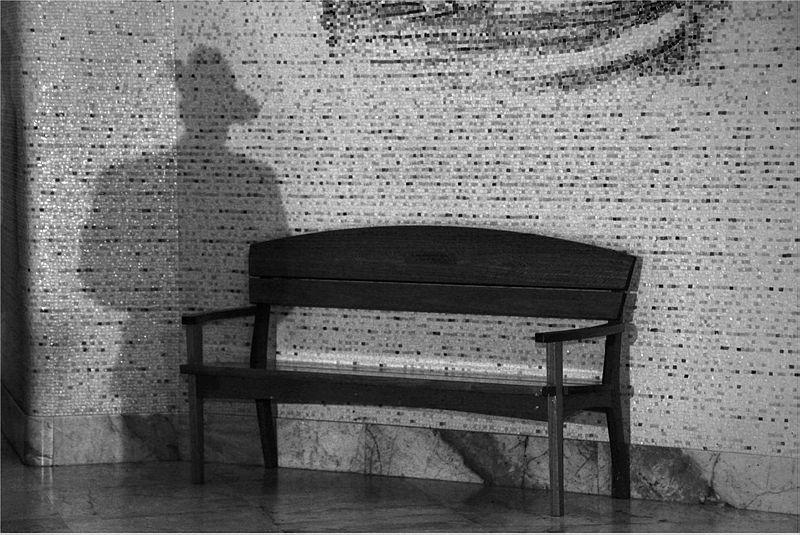The case for a royal commission into veteran suicide
Posted By Luke Gosling on December 16, 2019 @ 15:00

In recent months, Australia’s veterans and their brave family members have been calling, ever more loudly, for a royal commission into veteran suicide.
The need for a royal commission is real. It is urgent. And it should be absolutely bipartisan, because this is not a political exercise. This is a national crisis. The veteran death toll by suicide since 2001—by the most conservative of measures—is 10 times greater [1] than our losses in Afghanistan. These preventable deaths of our service men and women must stop.
Calls for a royal commission have been led by people like Julie-Ann Finney, who shared her son’s heart-wrenching story with parliamentarians last month. Such tragically common stories have inspired a national movement supported by over 268,000 Australians [2] and the Daily Telegraph’s #SaveOurHeroes [3] campaign. While no one can speak for all 641,000 Australian veterans, this represents a significant demand for answers and action from our community.
Like far too many veterans in Australia, I’ve lost close mates to suicide and know others who have attempted suicide during the struggle of transitioning from service to civilian life. I consider a royal commission into veteran suicide an urgent moral imperative, not least because nothing else has worked.
The prime minister alone has the powers to call it. He recently told parliament he would actively consider calling a royal commission over the summer break and decide in the new year.
Of course, a diversity of views exist on this question, including among veterans. And there is no overarching peak body that can claim to speak on behalf of the more than 6,000 ex-service organisations, whose own leaders do not always reflect the views of their members.
Some people object that royal commissions are a waste of money and achieve little. Government sources have even floated that the flagged $100 million cost of a royal commission might be better spent funding core Department of Veterans’ Affairs programs.
But royal commissions can be catalytic and even nation-defining. And they are not to blame for any lack of political will to implement and fund their recommendations. Their job is to inquire, not to govern.
As for the claim that there’s a trade-off between delivering core services to veterans and investigating the suicide crisis, this is akin to saying that we can’t tackle two policy challenges at once.
Reforms that are underway now can continue during the royal commission process and, if done right, will result in better outcomes than the current ad hoc approach to veterans’ services. DVA’s services are considered generous by international standards, but the rising veteran suicide rate shows that funding isn’t the main issue here.
Another common critique is that a royal commission should not be called before all prior recommendations have been implemented in full.
This objection is misleading. The Productivity Commission report [4] released in July had a much broader mandate and produced only four recommendations on veteran suicide. Three of those were about DVA better advertising and reporting on its work. The fourth called for the Department of Defence and DVA to urgently develop a strategy. To my knowledge, none currently exists.
Meanwhile, DVA has responded to or is implementing all 24 of the 2017 Senate inquiry’s recommendations [5], yet suicides are not slowing. If we face systemwide institutional failure, a royal commission is precisely what is required to determine why interventions are failing and to set a new course.
A small number of vocal ex-service organisations opposing a royal commission have claimed that veteran suicide is inseparable from the general suicide rate.
This is frankly absurd. Every dataset we have consistently confirms that the veteran suicide rate is very different to that of civilians: it is often lower for serving members and spikes dramatically on discharge, with women veterans’ suicides also higher [6] than the civilian rate. By all accounts, veteran suicide rates are sociologically distinct. To deny this is to turn our back on our service men and women.
Prime Minister Scott Morrison will no doubt have a lot on his mind over the break, including dealing with the devastating bushfires across our fire-ravaged country. But I call on him to give hope to those veterans and their families who may be struggling this Christmas.
The veteran suicide crisis calls for urgent action and Labor stands ready to support the prime minister in taking it.
Article printed from The Strategist: https://aspistrategist.ru
URL to article: /the-case-for-a-royal-commission-into-veteran-suicide/
URLs in this post:
[1] 10 times greater: https://www.news.com.au/lifestyle/health/mind/australias-other-deadly-war-in-a-year-it-killed-more-soldiers-than-the-whole-afghan-conflict/news-story/26b6063a8df35a340391cd32d99dd6d2
[2] 268,000 Australians: https://www.change.org/p/a-royal-commission-into-the-veteran-suicide-rate-in-australia
[3] #SaveOurHeroes: https://twitter.com/hashtag/saveourheroes?vertical=default
[4] Productivity Commission report: https://www.pc.gov.au/inquiries/completed/veterans/report
[5] 2017 Senate inquiry’s recommendations: https://www.dva.gov.au/sites/default/files/files/consultation%20and%20grants/reviews/Attachment_B_Sen_Inq_into_Vet_S_progress_30_Sept_2018.pdf
[6] higher: https://www.abc.net.au/radio/programs/worldtoday/higher-suicide-rates-among-women-veterans-than-civilian-women/11749910
Click here to print.